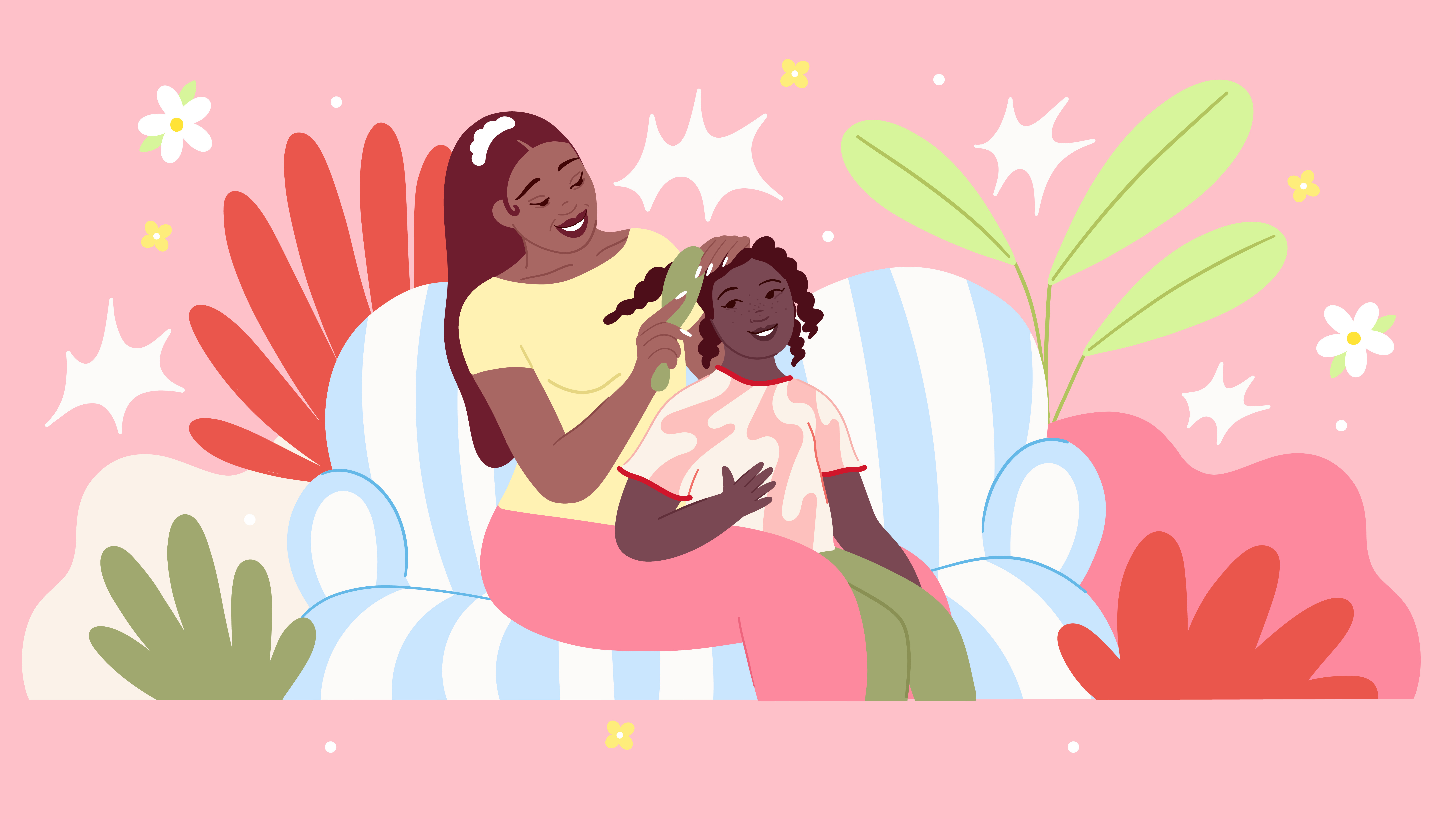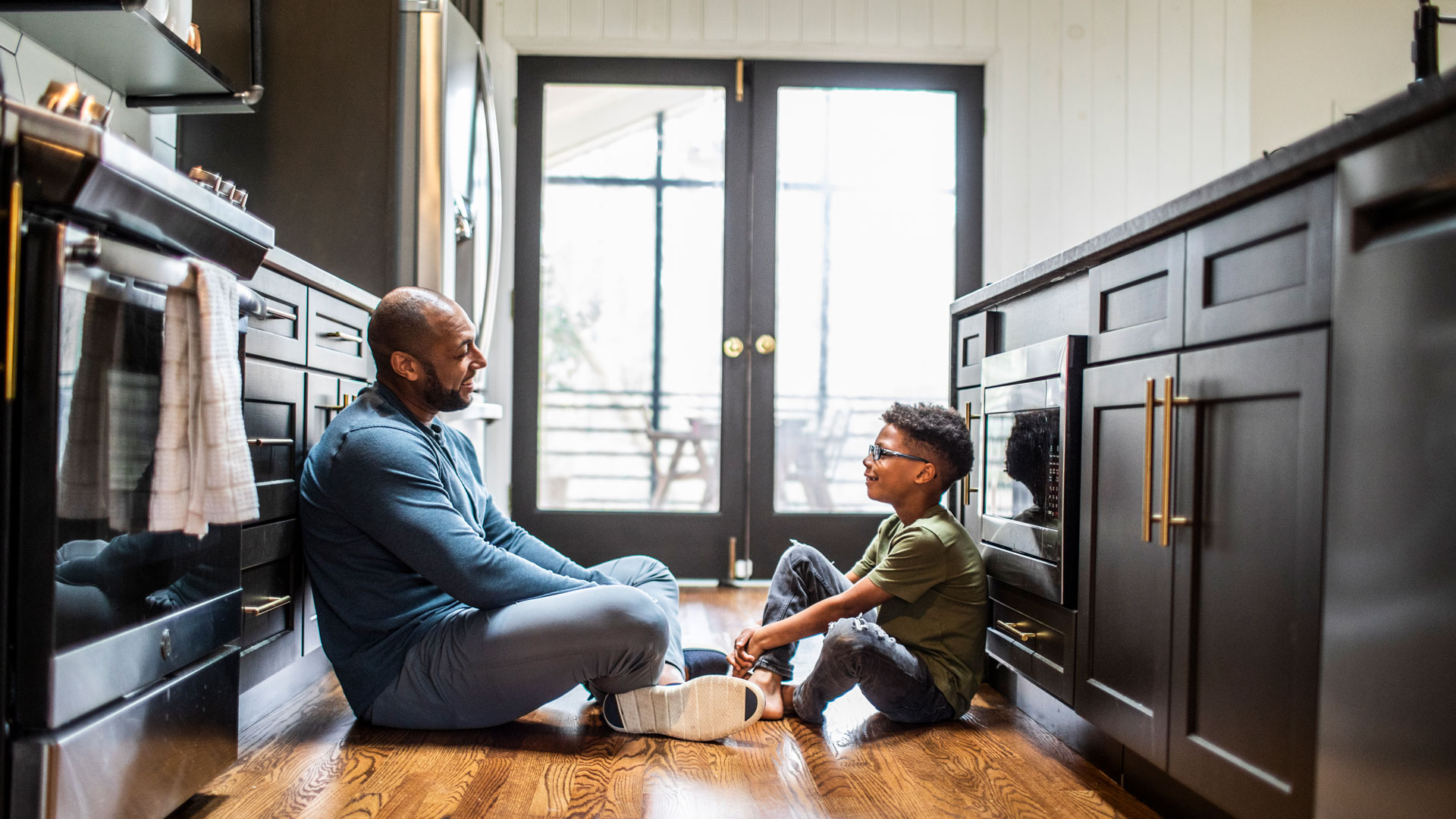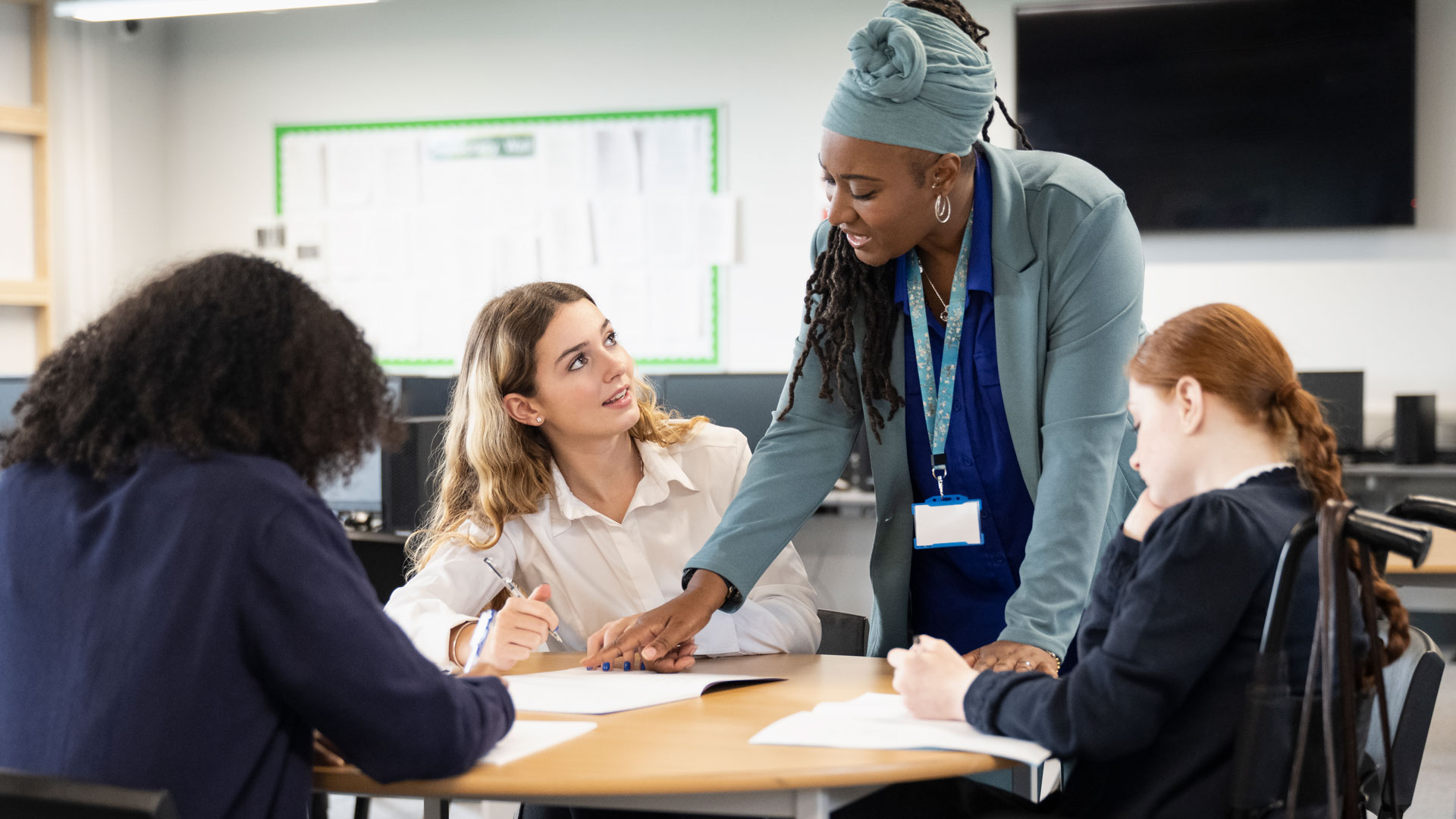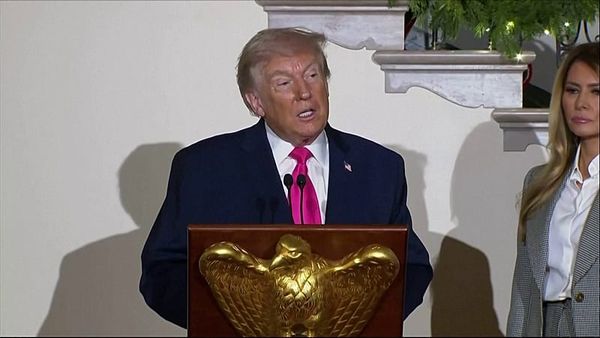
Kids are more switched on than they sometimes get credit for, and when it comes to their bodies, we owe them explanations on what's next for them as they grow up.
We know that talking openly about bodies may not come naturally at first, in a survey from Always* only 38% of adults talk openly about periods and puberty, that's 1 in 3 adults avoiding the conversation.... so you're not alone, it may feel awkward but it's worth sitting with that feeling and pushing on, and we can help with that.
It's also worth remembering that period chat is for everyone, all genders need to be in the know. This is why it's never too late, or early, to start the conversation. With that in mind, we've teamed up with Always to share six good reasons to talk to your kids about periods before they start school, and how to do that.
6 really good reasons to talk to your kids about periods
Most people start their periods at the age of 12, according to the NHS, and it's not unusual for some young people to get them at nine or 10 years old. And, while many adults worry that talking about periods and puberty at an early age could scare or embarrass their child, it's better to start open communication early, to show them that you are there to answer their questions and that you're comfortable with this conversation.
Here are six really good reasons to have these conversations:
1. Body autonomy and empowerment
Leaving period chat unsaid could be more scary for your kid when they do start their period. Rachel, 34, tells us; "I was about 11 when I wiped and saw blood. I was convinced I was dying, I ran out crying to my mum. And she gave me a giant pad and told me I was fine. But I'll never forget that initial panic, I had no clue."
As your kids approach the age of puberty, neutral, open, and informative chats about menstruation should start to happen - regardless of gender. Talking about periods before they go back to school can have such a positive impact on their overall well-being and development.
As responsible grown-ups, teaching our kids that their bodies are their own territory is a main priority. They should know what's happening inside their body Educating them about periods helps them understand that it's a natural part of life, and they don't have to feel ashamed or embarrassed about it. It's all about body autonomy. This knowledge empowers them to use their voice and to make informed decisions about their bodies in the future.
2. Full knowledge and understanding
Knowledge is power, give your kids power over their own bodies. Imagine you were about to take a trip, but you had no clue where you were heading or what to pack. That's how it can feel for kids who don't know about periods. Giving them the full lowdown on what periods are, why they happen, and how to deal with them prepares them for the journey through puberty. Sharing your knowledge - the who, what, where, why, and when - about periods helps them understand what is happening in their bodies and why it occurs, and that it's normal.

3. Crushing period stigma
Let's face it, period stigma is real, and it's had its time. We need to break that cycle, now. No more period jokes, no more 'Aunt Flo's in town' or whispering about pads and tampons. Talk loudly and proudly about periods to break down these dated taboos. The next generation will grow up understanding that periods are a natural bodily function and that there's nothing to be embarrassed about. Now's the time to put a stop to the harmful stereotypes and period-shaming behaviours. This approach with both boys and girls can mean a more empathetic and supportive school environment for all students.
4. Equal opportunity
Periods affect 49.74% of the worldwide population, so it's best that everyone knows about them. By talking to both genders the next generation will learn to be understanding and supportive when friends and family members go through it each month. And secondly, it's all about equality, knowledge about periods shouldn't be reserved for one gender. Everybody deserves to be in the know. Dad-of-two, Rob tells us; "I have two boys and I want them to understand periods and menstrual cycles and buy period products with ease, hit back at period jokes, and always use the word period." Mum-of-one, Steph agrees, "I remember my mum whispering the word 'period' in a sentence, and in sex-ed class, the girls watched a video on periods, not the boys, further perpetuating the narrative of 'shame' around them."
5. Encourages empathy and compassion
When everyone understands the challenges and emotions that come with menstruation, they can be there for the people who experience periods in their lives – being caring, and understanding, it's about building strong and supportive relationships. Lisa, 28, tells us how she wishes all men were like her boyfriend, "[my boyfriend] grew up with three sisters and period talk over breakfast was the norm. He knows all about cramps and has no problem buying my pads and tampons, he even knows my flow."

6. School ready
Alright, this one's practical. We want to make sure our kids are prepared for anything when they head back to school, right? If they know about periods, they won't be caught off guard, they'll know how to handle it comfortably, when everyone knows all about periods there's less to 'freak out' about if something unexpected happens. No more awkward moments.
Sam, 38 tells us; "I remember when I was about 12 and really needed to go to the loo because I had just come on, but the teacher said no and I was too embarrassed to say anything, so I just sat there and leaked, it was humiliating. Now, as a mum of two girls, I make sure they know their voice is important and have practiced with them how to tell the teacher directly that their period is the reason they need to go to the toilet now, not at break time."
It's also worth helping your child prepare a little kit in their school bag in case they start their period. Popping a few pads in can be a way to help your child feel prepared.
So there you have the reasons these open conversations are so important, here are a few tips on how to implement them;
- Choose the right time and place - usually in a car or on a walk, some places you both have other things you can concentrate on will make it easier, and with fewer interruptions.
- Embrace silence - for example, when you ask your kid 'So what do you know about periods?' don't be afraid to leave the silence there, give them time to think before replying.
- Show sameness and honesty - If you're feeling uncomfortable or awkward about this chat, be honest about that with them. Explain that no one told you about it, so you want to make sure they know, but you're learning as you go - adults don't know everything. This admission puts you on the same team as your kid. You and them versus period knowledge. Don't be afraid to Google questions together if you don't have the answer.
- Address any myths or misconceptions - the best way to do this, could be with an 'I remember' story... 'I remember when the whole of year 9 thought you couldn't get pregnant on your period. Woah how wrong they were.' Sharing stories of your own puberty journey will engage them.
It really is best to discuss periods with your child before they go back to school in case they start their period unexpectedly and also to help promote body autonomy, empathy, and understanding. By providing full knowledge and reducing stigma, grown-ups can empower pre-teens and teens to embrace their bodies with confidence and positivity.
What age should you talk to your child about menstruation?
Ideally, talking about periods isn't a milestone conversation. If there are people who have periods in the house, periods should be a run-of-the-mill conversation every month. For example, Jasmine got caught short in the loo with her 3-year-old, "he saw me using a tampon and asked 'Is that a sweetie?' I replied women bleed from their vagina every month. It's called a period. It isn't because I'm hurt. It's how my body gets ready for a baby. The tampon catches the blood so it doesn't go on my clothes." He didn't understand it all, but it helped me to start feeling better about saying those words outloud.
By the time they're 6 or 7 years old, most kids can understand the basics of periods. Look for a natural moment to talk more in-depth about it, such as: when kids ask about puberty or changing bodies or if your child asks where babies come from.
* Research from a five-year study, It's Time to Talk, conducted by Always.
GoodTo has teamed up with Always to help parents feel fearless when it comes to talking about first periods with their kids. For more information, visit Always.co.uk







